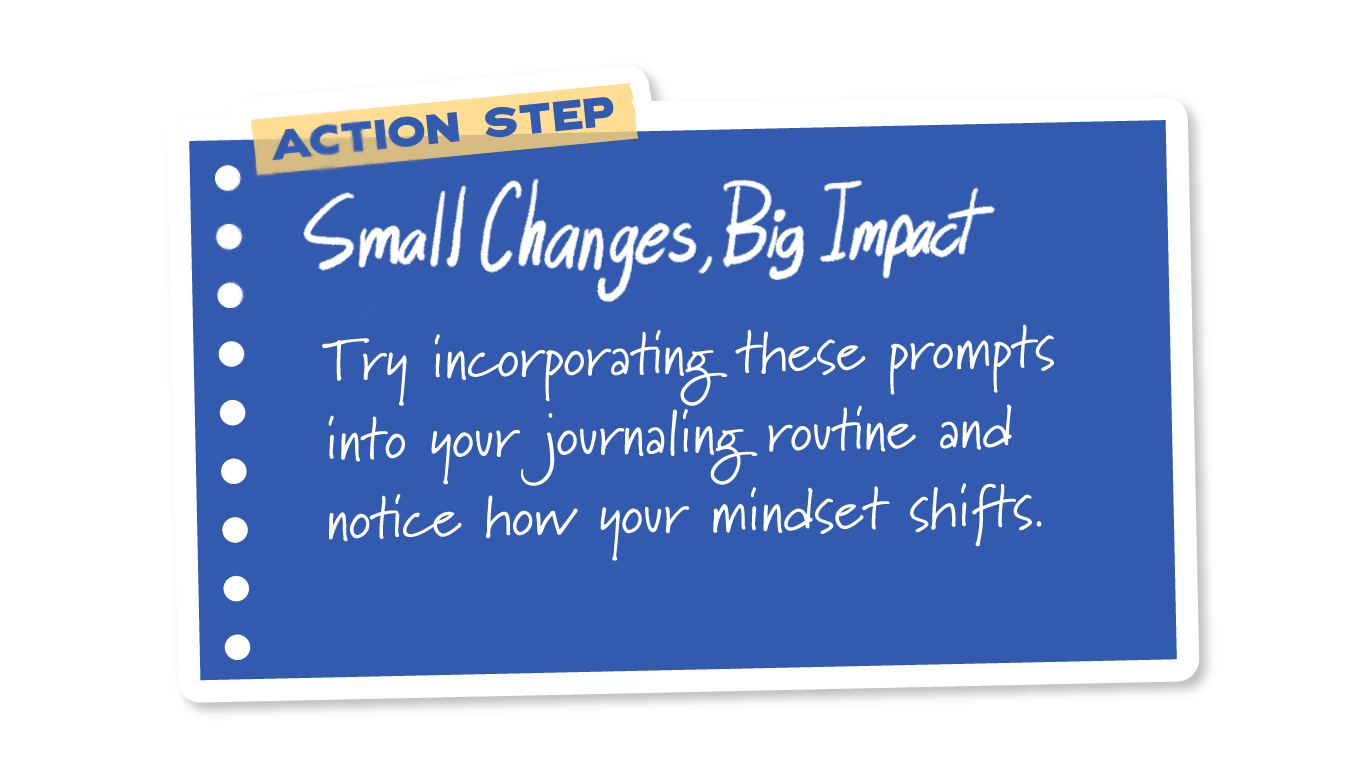

Your inner dialogue shapes how you perceive yourself, your abilities, and the world around you. Negative self-talk can become an unconscious habit, eventually leading to self-doubt and unnecessary stress. Your thoughts influence your emotions and your emotions influence your behaviors. By learning how to identify and reframe negative thoughts can lead to an increase in your success while on your health journey.
Journaling is a powerful tool for increasing awareness of these negative thoughts and challenging unhelpful thought patterns. Here are three effective journaling prompts to help you reshape your self-talk and develop a more constructive mindset.
Many negative thoughts are based on assumptions rather than facts. This prompt helps you examine the accuracy of your self-talk by looking at the evidence.
How to use it:
By breaking down your thoughts objectively, you can begin to see that your inner critic often exaggerates or distorts reality. You may be telling yourself a story that just isn’t true. You may have had an off-plan meal here or there, but once you look at all the evidence you’ll find the majority of the time you do stick to your plan.
We are often kinder to others than we are to ourselves. This prompt helps you reframe negative self-talk with more self-compassion.
How to use it:
This exercise helps replace harsh self-judgment with a more supportive and constructive internal dialogue.
Cognitive distortions like all-or-nothing thinking, catastrophizing, or overgeneralization can amplify stress and self-doubt. This prompt helps you find a more realistic and empowering way to frame your thoughts.
How to use it:
For example: instead of "I’ll never be good at this," you might write, "I’m still learning, and every step forward is progress."
Journaling for self-talk awareness can help you uncover unhelpful thought patterns and replace them with a more constructive mindset. By using these three prompts: examining evidence, offering yourself kindness, and finding balanced perspectives, you can transform your inner dialogue and cultivate greater self-confidence and resilience as you continue on your health journey.
